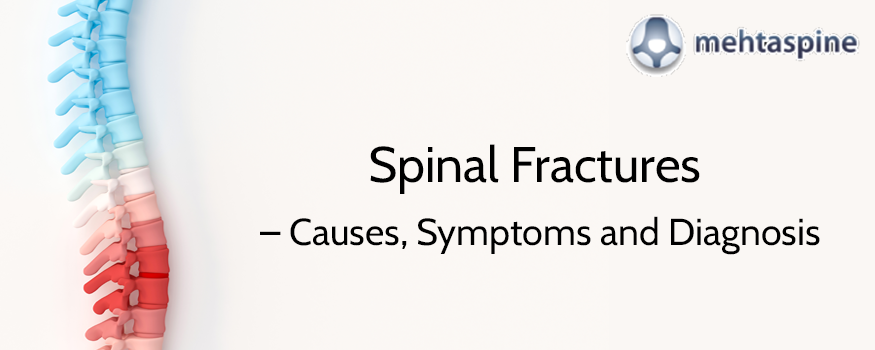Spinal Fractures – Causes, Symptoms and Diagnosis:
A fracture to the vertebrae that make up the spine is termed as a spinal fracture. The dislocation or break caused by the fracture can pinch the spinal nerves emanating spinal cord resulting in back pain, numbness, weakness, difficulty in walking, inability to move and even paralysis.
Spinal fractures can occur at any part of the spine. Cervical, thoracic or lumbar. While 15% of the spinal fractures occur in the cervical spine, 65% of the fractures happen in the thoracic spine.
Types of Spinal Fractures, Causes & Diagnosis:
Spinal fractures are generally classified into stable and unstable spinal fractures. While both types of fractures can be painful, a stable fracture does not compromise the stability of the spine like a unstable fracture does. A breakage of vertebrae that are classified under unstable fracture destabilizes the spine impacting its ability to hold the weight of the torso. Unstable spinal fracture van further impact the health of the spinal cord long after the fracture causing neurological damage and progressive spinal deformities like scoliosis, kyphosis or lordosis.
Sports collisions, accidents, falls and other traumatic experiences are some of the common causes of spinal fractures. In addition to them, acquired disorders like osteoporosis, spinal tumours, spinal fractures according to Children and Adult Spinal Surgeon Mr Jwalant S. Mehta. Spinal fractures can be diagnosed by imaging studies like x-ray and CT scans of the injured spine.
Symptoms, & Treatment for Spinal Fractures:
Spinal fracture symptoms depend on the location and severity of the injury. Symptoms of the fracture can include pain, numbness, weakness, muscle spasm, lower leg weakness bowel or bladder problems, paralysis i.e. loss of movement.
Majority of the fractures are treated conservatively where the bone is allowed to heal naturally without any race or surgery. The healing process, on average can take anywhere between 3 to 4 months with the majority of the pain subsiding in 6 weeks. However conservative treatments are effective for all types of spinal fractures. Braces and orthotics are used to treat stable fractures to align the spine, immobilize it for better healing and pain restriction. Surgical procedures like spinal fusion where vertebrae are fused together using bone graft are used to treats unstable spinal fractures. Kyphoplasty & Vertebroplasty are minimally invasive procedures that are employed to treat spinal fractures commonly caused by spinal tumours or osteoporosis.
That said any type of spinal fracture needs immediate attention of an expert spine surgeon in UK to improve the chance of successful recovery. For more information or help regarding the treatment of any type of spine problems in the UK, you can contact Children and Adult Spinal Surgeon Mr Jwalant S. Mehta, here: Clinical secretary: Samantha Leavy +44 785 021 1939


